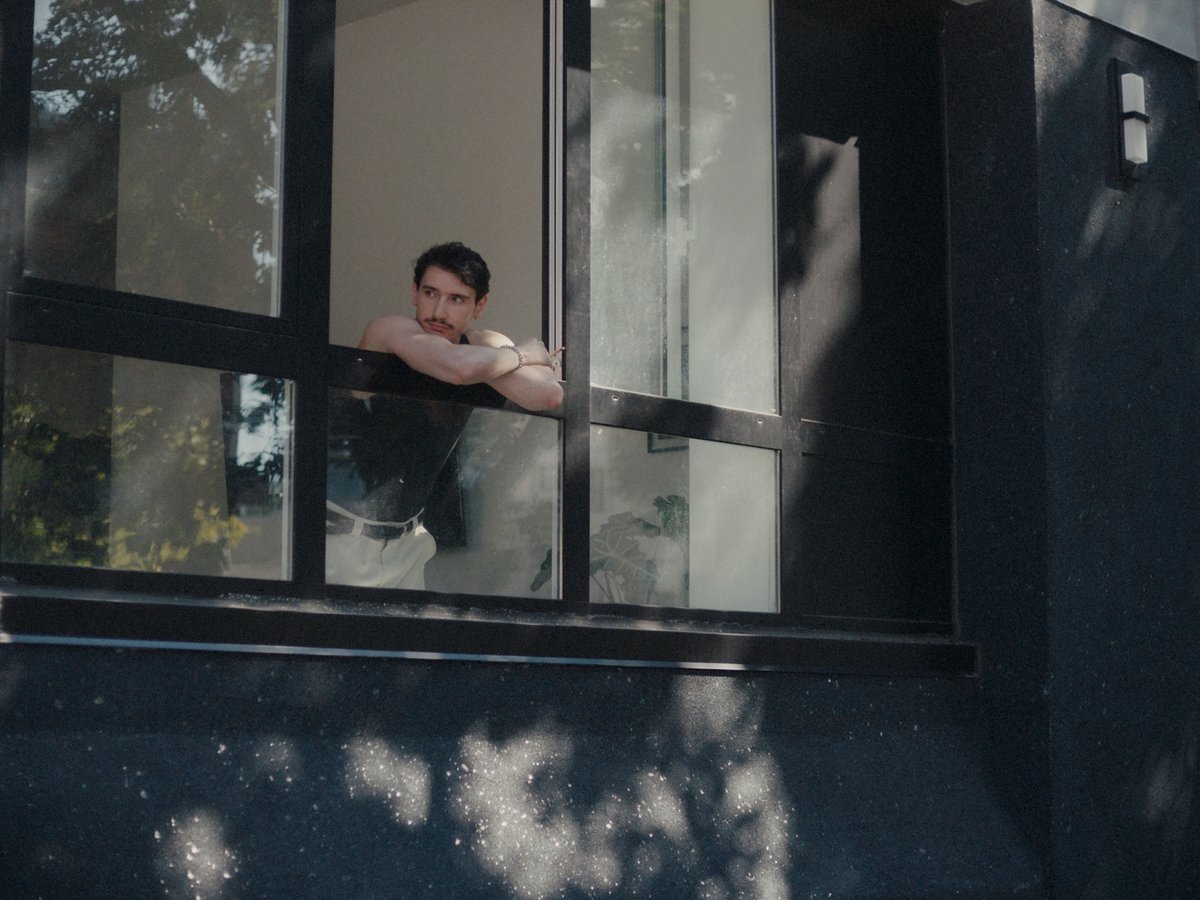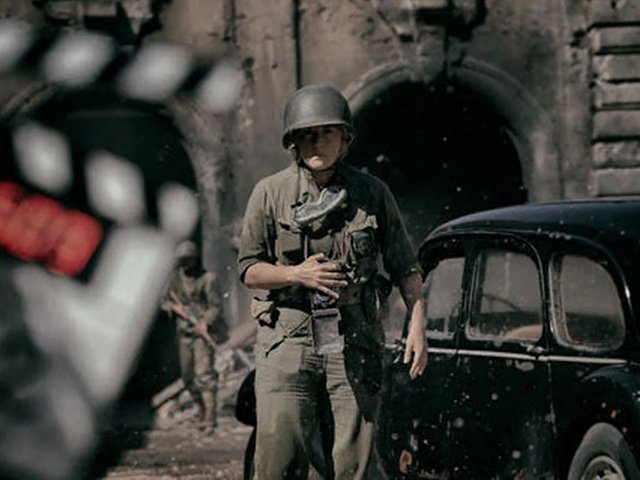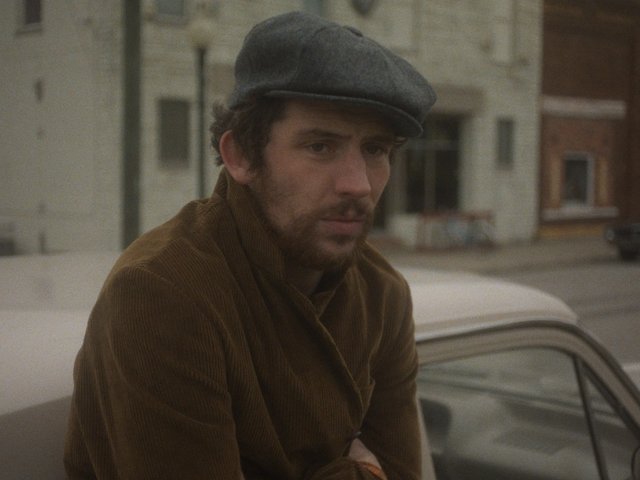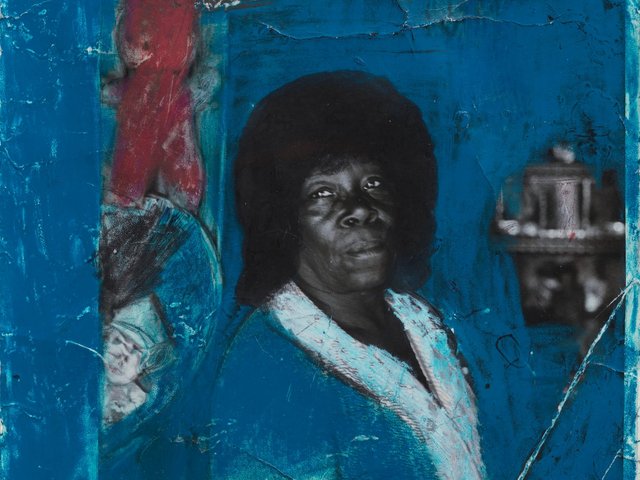Ah, to be young, attractive, unattached and in the city for the summer… At the beginning of Drunken Noodles, from the New York-based Argentinian writer-director Lucio Castro and which just had its world premiere at the Acid strand of the 2025 Cannes Film Festival, the Bard College student Adnan (Laith Khalifeh) disembarks from the Marcy Avenue J/M/Z stop with a single wheeled suitcase, in town for a cat-sitting stint at his uncle’s and a gallery-assistant gig in Chinatown. (The film was shot at Situations, then in its Henry Street location, while Michael Bühler-Rose’s solo show I Want Your Skull was hanging.) The gallery director, shortly to head out to “the fair”, tells him that he will not really have to do much—people just come in, look at the art and leave—and his uncle’s cat is pretty low-maintenance, too, so Adnan soon settles into a self-contained routine of eating takeout, wandering Williamsburg and cruising.
As in his debut feature, End of the Century (2019), about an Airbnb tourist who picks up a local for a one-off tryst, only for both to realise that they had shared a profound experience together decades before, Castro is interested in the apps that foster a modular, frictionless urban existence, and what types of desire they do and do not satiate. In Drunken Noodles there is a sharp cut from Adnan giving five stars to an Uber Eats courier to Adnan finishing a Grindr rendezvous. Like Ryusuke Hamaguchi’s, Castro’s films are becalmed—New York feels lazy and empty, all dappled summer light and birdsong, and he favours understated, deliberate performances—but the placidity conceals an ache that is revealed when coincidence and contrivance roil the surface of the narrative.
Cruising, with its charged serendipities, can unlock Castro’s characters; so can art. Both play their part in the connection Adnan develops, after an initial hookup, with a deliverista who comes to share his curiosity about the erotic needlepoint art of Sal Salandra. For the past decade, Salandra, a retired hairdresser and self-taught artist, has embroidered samplers drawing inspiration from fairytales and BDSM culture, depicting orgies and salacious scenes such as You Have Been Lying (2023), envisioning an engorged Pinocchio and a leather-daddy Geppetto.
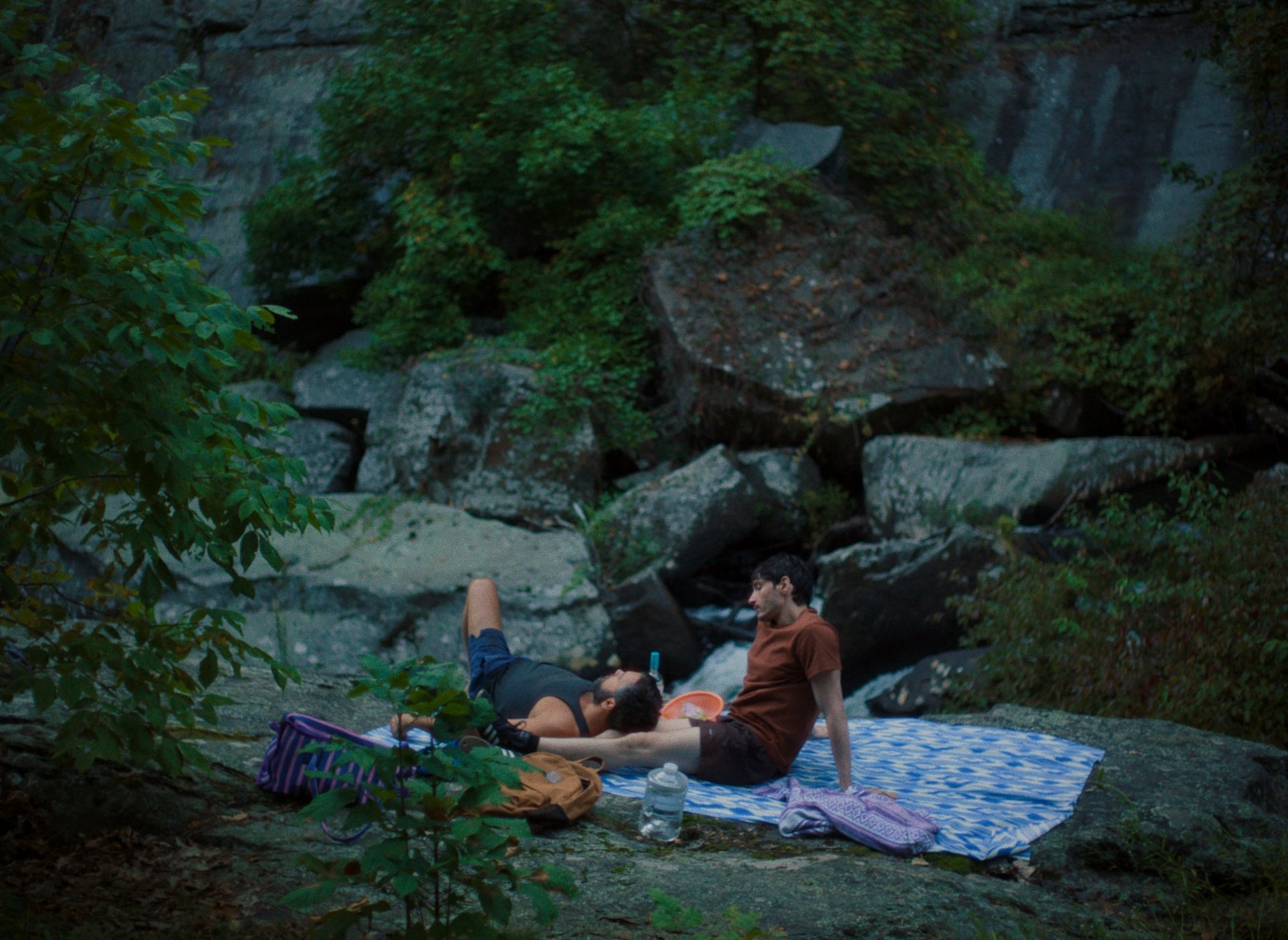
Laith Khalifeh and Matthew Risch in a scene from Lucio Castro's Drunken Noodles (2025) Courtesy Alsina 427
Salandra’s work displays the mix of folk craft, playful imagination and elaborate, erotic fantasy characteristic of many US artists classified as “outsiders”. Though he has begun to attract the attention of the art world, it’s particularly his suggestion of private abandon conjured into tangible reality that sparks Drunken Noodles. Fascination with the work leads Adnan into new sexual situations, with new and diverse partners, which Castro films in a hushed air of revelation—but also with an awareness of the delicacy and inherent silliness of pleasure and experimentation, in the manner of recent goofy, horny gay films by João Pedro Rodrigues.
Castro’s scripts tend to establish characters and a milieu before jumping decisively forward or backward in time, a move he then repeats multiple times. The first such leap in Drunken Noodles takes Adnan upstate and back to the previous summer, to his first, chance meeting with the film’s Salandra stand-in. (Castro had initially planned a documentary about the artist, whom he interviewed, before drifting into fiction.) Like Eric Rohmer’s Four Adventures of Reinette and Mirabelle (1987)—another film glancingly concerned with gallery etiquette—a flat bicycle tire leads to an encounter with a stranger, a meal at a picnic table in the yard and a shared predawn vision of aesthetic reverie. In the Rohmer film, Reinette and Mirabelle witness “the blue hour”, just before sunrise, which cements their friendship; Castro’s magic-hour moment is no less solemn, but also fancifully pornographic.
Subsequent act breaks take Adnan in and out of New York City and in and out of a relationship. The cumulative effect of these dramatic resets is to position the different aspects and possibilities of Adnan’s life at odd angles to one another, like works in a sculpture garden, the juxtapositions producing new perspectives on city life and non-monogamous queer life—both defined, in Castro’s films, by an uneasy equilibrium between freedom and loneliness. In the film’s final, magical-realist movement, Adnan discovers a “portal” at a popular cruising spot. Like an icon on a cruising app or a painting in a gallery, a portal is a hole to fall through, or an emptiness to be filled.
Watch the trailer for Drunken Noodles:
- Drunken Noodles had its world premiere on 18 May as part of the Cannes Film Festival’s Acid programme.


